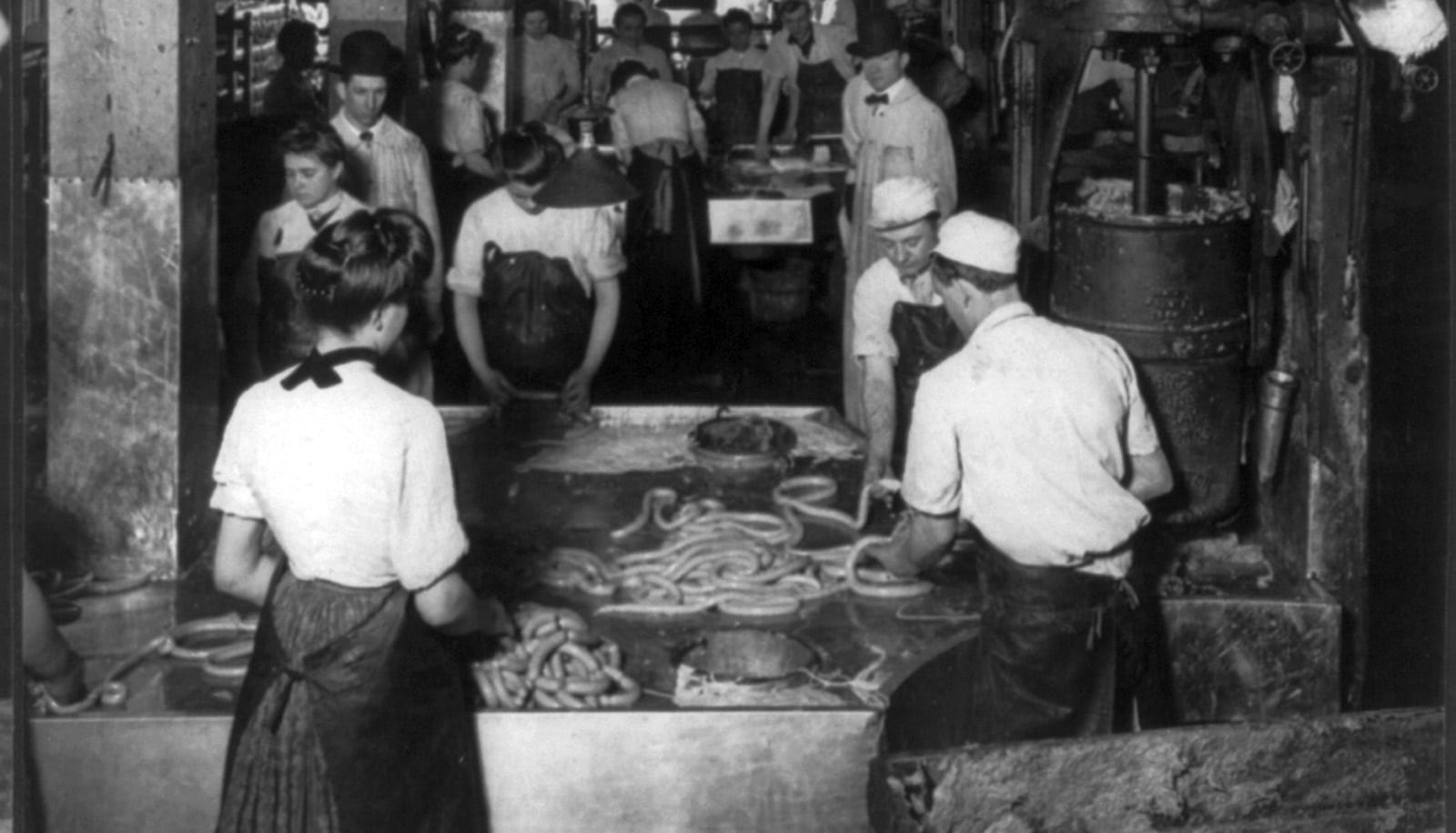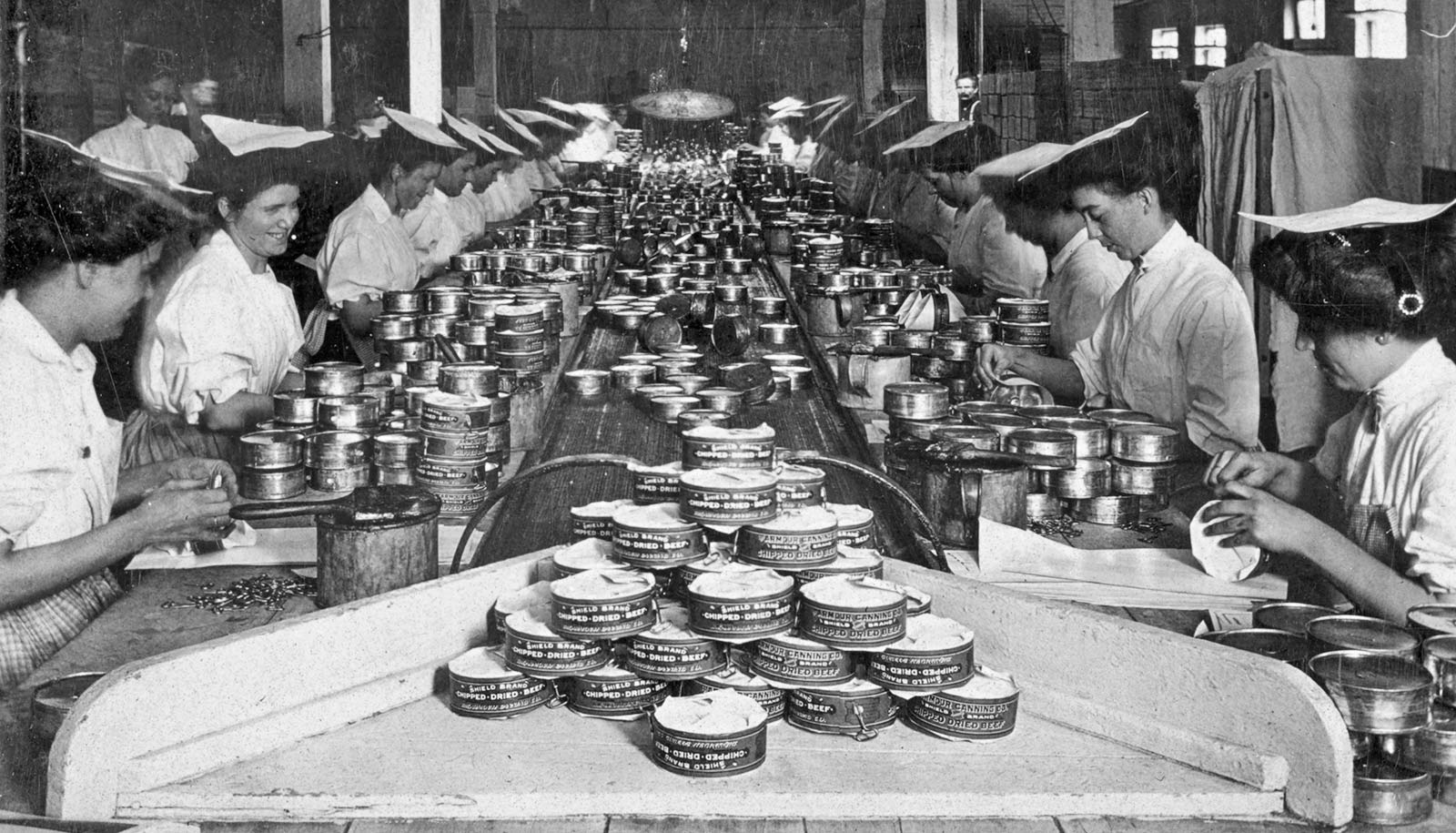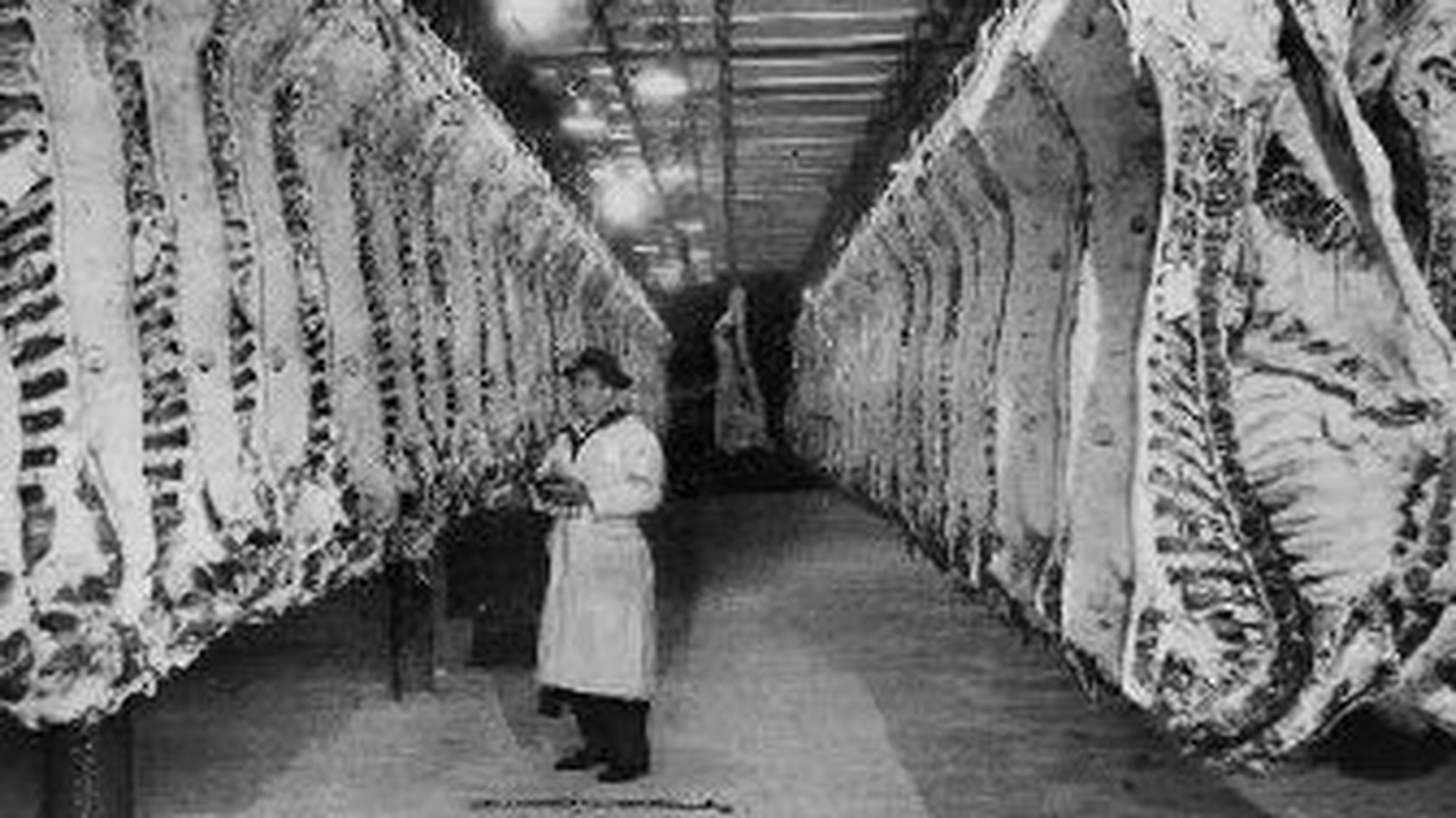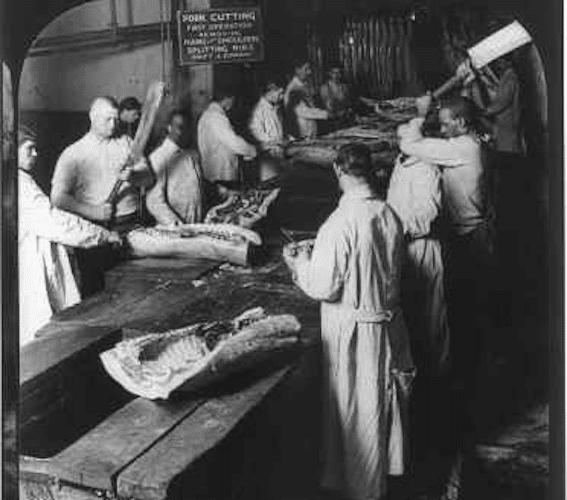How Did the Jungle Show That the Meatpacking Industry
His description of diseased rotten and contaminated meat shocked the public and led to new federal food safety laws. The 1905 story about the Chicago meatpacking industry that inspired Upton Sinclairs novel The Jungle also shows the power of photojournalism a study argues.

A Century After The Jungle Meatpacking Still Has Some Problems The Spokesman Review
-Upton Beall Sinclair Jr.

. We Will Write a Custom Case Study Specifically. The novel portrays the harsh conditions and exploited lives of immigrants in the United States in Chicago and similar industrialized cities. Was a writer of novels of social protest and political tracts.
Meatpackers created an industrial assembly line requiring about 80 separate jobs from the slaughtering of an animal to processing the meat for sales BRIA 24 1 B Upton Sinclairs The Jungle. In 1662 he became the New Worlds first meatpacker when he began packing large quantities of salted pork into barrels for export to the West Indies. This act required the Department of Agriculture to inspect every hog and steer whose carcass state lines.
The Jungle is a 1906 novel by the American journalist and novelist Upton Sinclair. Sinclairs book was so moving and troubling that it inspired the establishment of the Food and Drug Administration a federal agency that is to this day responsible for regulating. The research looks back at a series.
The scraps of an animal ended up in. The Jungle which he published in 1906 opened the eyes of the public to everything that they did not want to know about the American food industry. President Roosevelt urged Congress to pass the Meat Inspection Act of 1906.
The Jungle a 1906 novel by Upton Sinclair is full of graphic descriptions of the poor conditions workers and cattle endured in the Chicago meat-packing industry. The Jungle is about the poor working conditions and the very poor sanitation in 1906. We will also be talking about the backstory behind Upton Sinclair.
Muckraking the Meat-Packing Industry. The Jungle details terrible working conditions in the meatpacking industry. With this release changes occurred.
The meatpacking industry is born. The Jungle is as an exposé of the horrific working conditions and unsanitary conditions in Chicagos meatpacking industry. The novel portrays the harsh conditions and exploited lives of American immigrants in Chicago and similar industrialized cities.
He is best known for his 1906 expose of the meatpacking industry The Jungle-Upton Sinclair wrote The Jungle to expose the appalling working conditions in the meat-packing industry and the poor treatment of immigrants. There were the men in the pickle rooms for instance. The Jungle a harrowing account of a Lithuanian immigrants experience laboring in Chicagos meatpacking industry was serialized.
Upton Sinclair wrote The Jungle to expose the appalling working conditions in the meat-packing industry. Through a fictional plot Sinclair describes abysmally low wages and filthy and dangerous working conditions. English colonist and fur trader William Pynchon was the founder of Springfield Massachusetts.
For You For Only 1390page. Before the turn of the 20th century a major reform movement had emerged in the United States. In 1905 Upton Sinclair 18781968 a young socialist journalist and novelist received a 500 advance to write a novel about abuses in the meat processing industry and spent seven weeks investigating the subject in Chicago.
In The Jungle Upton Sinclair explains how horrible working conditions were for people in the meatpacking industry. The meatpacking industry denied everything but investigators dispatched by then-President Theodore Roosevelt after he read The Jungle found that as the president relayed the Chicago stock yards are revolting Yet very little of The Jungle has to do with unsanitary meatpacking practices. Luckily president Theodore Roosevelt was outraged and pushed Congress to pass the Meat Inspection.
Up to 24 cash back The publication of The Jungle in 1906 sparked a drastic change in meat consumption. Sinclairs descriptions of rotten and contaminated food making it out the factory doors to consumers sparked outrage. Depending on the edition the novel runs between 300 and 500 pages.
In The Jungle Sinclair exposed the unsanitary conditions in the meat packing industry and this resulted in a greater public awareness of the problem and passage of laws regulating that industry. From the killing beds to the fertilizer plant the meatpacking plant is portrayed as a Hell on Earth a place of. Have you ever wondered what effect Upton Sinclair had on American industry.
Sinclairs grotesque descriptions of conditions and procedures in the meatpacking plant led to subsequent reforms in food safety regulation. Sinclairs primary purpose in describing the meat industry and its working conditions was to advance socialism in the United States. The following is an excerpt.
Thus many people became vegetarians until stricter laws were implemented. Most readers were shocked by his exposure of health violations and unsanitary practices in the American meatpacking industry. Consumers were very concerned with the quality of meat they had been purchasing.
His novel The Jungle 1906 a shocking exposé of the unsanitary and dangerous conditions in the plants was an immediate best-seller and incited. The Jungle was released to expose meatpacking industries ways of treating workers and meat.

Shocking Chicago Meatpacking Pics Shifted Public Policy Futurity

September 20 1878 Upton Sinclair Jungle Old Photos

Upton Sinclair And The Jungle Photographs From Chicago S Meatpacking Industry Circa 1900 Chicago History Photos Chicago Vacation Chicago Pictures

Chicago Meat Packing Industry Cattle In Great Union Stockyards 1900 Upton Sinclair Books Everyone Should Read Jungle

Postcard Chicago Meat Packing Scandals Cartoon Tinned Meat Series 1907 Meat Packing Meat Packers Chicago

The Jungle And The Meatpacking Industry Youtube
The Jungle Wonderful Story Of The Meat Packing Industry By Upton Sinclair Nook Book Ebook Barnes Noble

Shocking Chicago Meatpacking Pics Shifted Public Policy Futurity

Gansevoort Plaza Meat Packing District Public Space Urban Landscape Landscape Scenery

The Jungle Upton Sinclair Upton Sinclair Penguin Classics Penguin Books Covers

Meatpacking District Nyc Meatpacking District 1990s Photos Meat Packing

These 7 Rare Photos Show Chicago S Meat Packing History Like Never Before Cidade Pos Apocaliptico Lugares

Upton Sinclair And The Jungle Photographs From Chicago S Meatpacking Industry Circa 1900 Chicago Factory Worker Worker

A Century After The Jungle Meatpacking Still Has Some Problems The Spokesman Review

A1 Poster Chicago Meatpacking Factory Workers Dropping Hides And Splitting Chucks In The History Design Chicago History Chicago

Gloom And Horror Unrelieved American Experience Official Site Pbs

The Jungle Pandemic Edition Mr Online

These 7 Rare Photos Show Chicago S Meat Packing History Like Never Before Chicago Transportation Chicago Photos Chicago History
